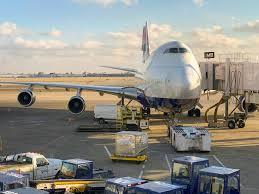Choosing the Right Forwarding Company in Malaysia: Key Considerations for Businesses
الجسم
Selecting the right forwarding company is crucial for businesses that rely on international trade or domestic logistics. As Malaysia is a significant player in global trade, businesses in the country must partner with reliable and efficient freight forwarding services to ensure timely deliveries, manage costs, and navigate the complexities of supply chains. With so many options available, businesses must carefully evaluate various factors to make the right choice. Here are the key considerations when selecting a forwarding company in Malaysia.
1. Experience and Reputation
When choosing a forwarding company, experience plays a pivotal role. A company that has been in the industry for years is likely to have a deep understanding of the complexities involved in international shipping, customs regulations, and local logistics. Such companies have built systems and relationships that streamline operations, reducing the likelihood of costly mistakes.
Look for a forwarding company with a solid track record and positive customer reviews. Online feedback, industry awards, and testimonials from other businesses can give you an idea of the company’s reliability and service quality. A good reputation is often a sign that the company has consistently met the needs of its clients and can be trusted with your shipments.
2. Services Offered
Different forwarding companies provide different services, and your choice should depend on your business needs. Some companies may specialize in air freight, while others might focus on sea freight or land transportation. If your business deals with multiple types of goods or requires shipments to various regions, it’s essential to choose a company that offers a wide range of services to accommodate your specific needs.
Furthermore, check if the company provides value-added services such as customs clearance, warehousing, packing, or cargo insurance. These extra services can save you time and effort, ensuring that your shipments comply with regulations and are well-protected during transit.
3. Global Network and Partnerships
Since shipping often involves international borders, a forwarding company’s global network is a crucial factor to consider. A strong network ensures smoother and faster movement of goods, especially when your shipments need to pass through multiple countries.
Look for a forwarding company with established partnerships with carriers, customs brokers, and agents across key global trade routes. The company's network should be aligned with your destinations, whether you're shipping to or from Europe, Asia, or the Americas. A company with a wide global presence is more likely to handle your logistics more efficiently and find alternative routes or solutions in case of unexpected delays or issues.
4. Cost-Effectiveness
While cost should never be the sole determining factor, it is certainly a critical consideration. Freight forwarding can be expensive, especially for international shipments, so it’s important to evaluate the pricing structure of a forwarding company. However, the cheapest option is not always the best, as it may sacrifice service quality or lead to delays.
Instead, aim to find a forwarding company that offers transparent pricing without hidden fees, along with competitive rates. They should be able to provide a clear breakdown of all costs involved, including freight charges, customs duties, and any additional services. Assess whether the price matches the level of service and reliability they offer. It’s also a good idea to get quotes from multiple companies and compare them to ensure you're getting the best value for your money.
5. Customs Expertise
In Malaysia, navigating the country's customs regulations can be challenging, especially with frequent updates to import/export laws. A good forwarding company should have extensive knowledge of local customs procedures to ensure that your goods clear customs quickly and without unnecessary complications. A delay at customs can lead to added costs and affect your business operations, so expertise in this area is indispensable.
Ensure that the company can assist with import and export documentation, such as bills of lading, certificates of origin, and customs declarations. Ideally, they should have a dedicated team or partnership with customs brokers to handle these processes efficiently.
6. Technology and Tracking Systems
The modern logistics industry is heavily reliant on technology, and having a company that integrates advanced systems for tracking and communication is invaluable. Choose a forwarding company that offers real-time tracking so you can monitor your shipments throughout their journey. This will help you stay informed and address any potential issues before they escalate.
Additionally, some companies offer online portals where you can track multiple shipments, manage inventory, and get instant updates. This level of transparency can provide peace of mind and improve your overall shipping management.
7. Customer Support
In any business relationship, reliable customer service is essential, and the logistics industry is no exception. A forwarding company should offer excellent customer support that is responsive and knowledgeable. You may encounter issues or need assistance with your shipments, so it’s important to know that you can count on your forwarding partner to resolve problems quickly and efficiently.
Consider companies that provide multiple channels of communication, such as phone, email, and live chat. They should have a dedicated support team available to address inquiries promptly, especially in urgent situations.
8. Flexibility and Scalability
As your business grows or shifts focus, your logistics needs may change. A good forwarding company should be flexible enough to adapt to these changes. Whether you need to scale up for larger shipments, change delivery destinations, or switch from air to sea freight, your forwarding company should be able to adjust to your evolving requirements.
Look for a company that offers scalability, meaning they can handle small, medium, and large shipments with ease. This flexibility can be particularly beneficial if you foresee expanding your operations or entering new markets.
9. Sustainability Practices
As environmental awareness increases, many businesses are looking for ways to reduce their carbon footprint. The logistics sector is no exception, and many forwarding companies now offer sustainable shipping options. From eco-friendly packaging to carbon offset programs and energy-efficient transport options, it’s worth considering whether the company is committed to sustainability.
Choosing a forwarding company that aligns with your business’s environmental values can not only improve your reputation but also appeal to customers who prioritize sustainability.
Conclusion
Choosing the right forwarding company in Malaysia involves a combination of factors, including experience, services, pricing, and reputation. With a reliable partner, businesses can streamline their logistics processes, reduce costs, and avoid disruptions in the supply chain. Take the time to evaluate potential partners carefully, ask the right questions, and choose a company that can grow with your business and provide consistent, high-quality service. By doing so, you'll set the stage for smooth, efficient operations and strong business success.









تعليقات